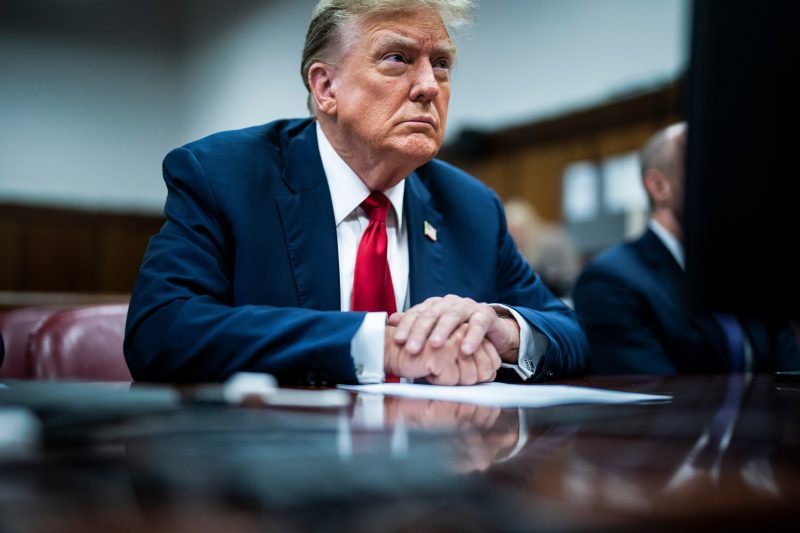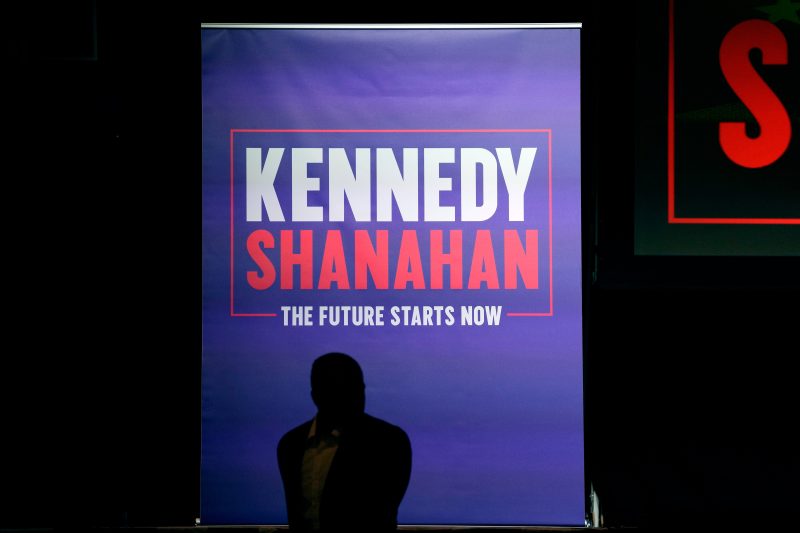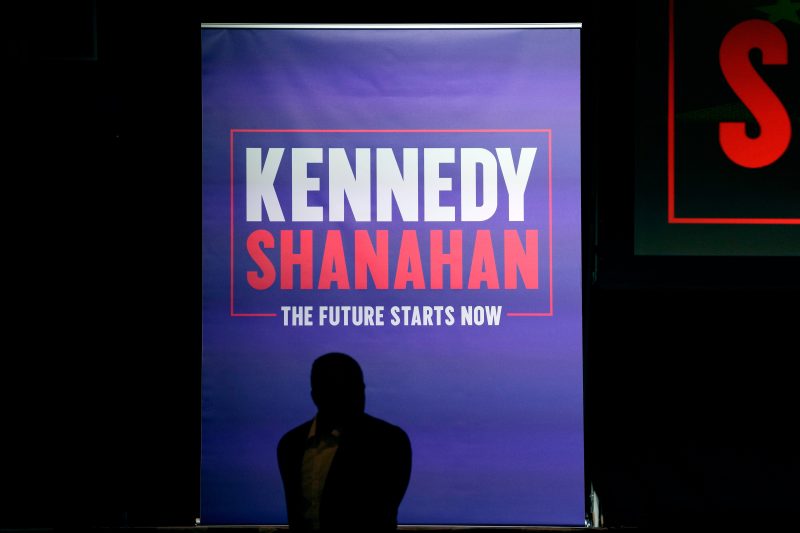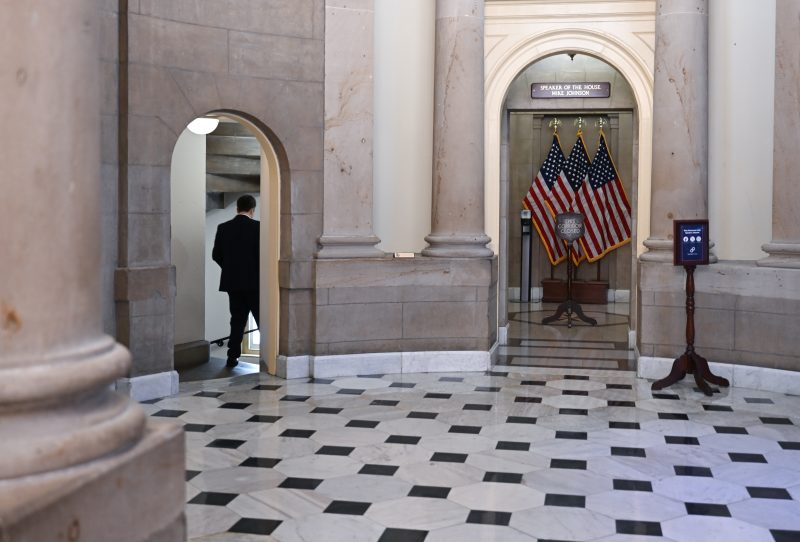
A N.Y. court tossed Harvey Weinstein’s conviction. Could it help Trump?
The New York appeals court’s stunning decision Thursday to overturn Harvey Weinstein’s sex-crimes conviction landed during the second week of Donald Trump’s ongoing criminal trial — and will undoubtedly be closely examined by the judge overseeing the Trump trial, according to legal experts.
The Weinstein decision could offer a potential avenue of appeal to the former president’s attorneys or prompt New York Supreme Court Justice Juan Merchan to adjust his rulings in the Trump case in real time, reflecting this newfound direction from New York’s highest court, the experts said.
In the Weinstein case, the appeals court ruled 4-3 that the former movie producer’s 2020 conviction should be thrown out because the trial judge allowed testimony regarding “uncharged, alleged prior sexual acts” that were not included in the criminal charges he faced. The appeals court also said the trial judge erred by saying that Weinstein, if he testified, could be questioned about a wide range of other alleged wrongdoing.
Merchan has similarly confronted questions about how much evidence to allow jurors to hear about Trump’s behavior with women over time and what topics he could be asked about on the stand.
“He doesn’t want to risk a reversal,” said Stephen Gillers, an emeritus law professor at New York University. “The decision has to factor in and maybe affect [his] rulings.”
But Cynthia Godsoe, a law professor at Brooklyn Law School, said that while Merchan would closely review the decision, she believed it was unlikely to impact Trump’s case.
“I’m sure he is scrutinizing it,” Godsoe said of Merchan. But she said Merchan has already been meticulous about what allegations and evidence he allows into the trial, putting him on safe ground.
“The judge has been very careful to keep out stuff that arguably could go in, but he’s trying to be really careful, given the context” of a former president on trial, Godsoe said. “He’s definitely being conservative.”
Trump has been charged with 34 counts of falsifying business records as part of a hush money scheme to keep the adult-film actress Stormy Daniels, whose real name is Stephanie Clifford, from publicly alleging during the 2016 presidential campaign that they had an affair. He has pleaded not guilty and also faces three other prosecutions in Florida, Georgia and D.C.
Weinstein, like Trump, is a prominent New Yorker from Queens who was prosecuted by the Manhattan district attorney’s office. In 2020, Weinstein was convicted in New York by jurors who found that he forced oral sex on a former production assistant and raped an aspiring actress. He was sentenced to 23 years. He was also convicted in California in 2022 on counts that included rape and sentenced to 16 years behind bars there.
The Manhattan district attorney’s office on Thursday pledged to retry Weinstein. Cyrus Vance Jr., who had led that office during Weinstein’s prosecution, said in a statement that he was “shocked” by the court’s decision, saying a lower court had previously concluded that Weinstein’s trial judge allowed witness testimony that was needed and fair.
The appeals court’s decision hinged on two things: what is known as “Molineux” material, which deals with evidence of other alleged crimes not charged in the case at hand; and “Sandoval” material, which covers what “bad acts” can be brought up if a defendant chooses to take the stand and testify.
Godsoe said she thought the appeals court acted correctly in the Weinstein case. In that trial, she said, the “Molineux” witnesses — three women who accused Weinstein of wrongdoing that they said took place years before and after the incidents for which he was charged, allegations that were not included in the charges against him — should not have been called to testify.
She said the witnesses and testimony that Merchan has so far signaled he will allow to be introduced in Trump’s trial seemed much closer to the criminal allegations at hand.
Merchan last month ruled that testimony from or discussing Daniels and Karen McDougal — who also alleged a relationship with Trump — could be allowed. Merchan wrote that “evidence and testimony surrounding these individuals is inextricably intertwined with the narrative of events and is necessary background for the jury.”
On the other hand, the judge found that said instances in which women accused Trump of sexual misconduct or assault cannot be presented to jurors, describing them as too flimsy and “very, very prejudicial.” And he decided that jurors would not be shown the “Access Hollywood” recording, in which Trump can be heard discussing grabbing women by their genitals, though he said he would allow prosecutors to introduce emails from Trump campaign officials about the tape.
Judges need to carefully consider what evidence gets introduced, making sure that the material is relevant and doesn’t prejudice jurors against a defendant, according to Cheryl Bader, an associate law professor at Fordham Law School. Merchan has tried to “thread the needle to lessen the risk of prejudice in this case,” Bader wrote in an email, pointing to his decision on the “Access Hollywood” video.
But, she wrote, the appeals court’s ruling in the Weinstein case offers “a cautionary reminder in real time for the Trump prosecutors and the judge that bad act evidence can be a risky proposition that could backfire on appeal.”
Merchan has said that if Trump testifies, prosecutors can ask him about issues including a recent civil court case in which a judge concluded that he and others carried out a years-long financial fraud; his violations of a gag order in that case; and his two separate court losses to the writer E. Jean Carroll, who sued him for defamation.
Legal experts said Merchan appeared to be on safe ground allowing Trump to be asked about these topics.
Gillers said going forward, though, Merchan will have to keep the appeals court’s decision in mind while he decides other issues about evidence and testimony.
“Now that may not change the ruling,” Gillers said, “but he has to process it in his decision.”



